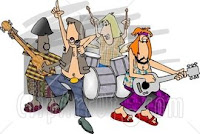
When Peter got a mad mark in school, his mother scolded him. “Last year I was proud of you,” she said. “You were the best pupil in the class.”
The little boy was ashamed, but then he thought a moment. He looked at his mother with a smile and said, “But Mother, other mothers also want to be proud of their children, and that would be impossible if I were
always first.”
A. What excuse did Peter give for not being first? (Which is the correct answer?)
1. He wanted other mothers to be proud of their children.
2. He didn’t like his teacher.
3. He didn’t go to school every day.
4. He liked his friends.
B. Find antonyms for these words and their parts of speech.
1. last year ______________
2. good _____________
3. praised _____________
4. ashamed _____________
5. the worst _____________
6. a long time _____________
7. possible _____________
8, never _____________
9. teacher _____________
10. the grown man _____________
C. Rewrite these sentences. Change the verbs to the negative.
1. He got a good mark.
2. I was proud of you.
_______________________________________________________________
3. He thought a long time.
4. He looked at his mother.
____________________________________________________________________
5. I am always first.
6. Write your own sentences:
a. (a statement)
_________________________________________________________________
b. (Make the same statement negative.)
D. Tag questions follow statements. Always use the same tense.
Examples: a. Your daughter lives with you, doesn’t she?
b. Your daughter doesn’t live with you, does she?
c. You lived in China before you came here, didn’t you?
d. You were late yesterday, weren’t you
1. He got a good mark, __________________________?
2. He writes emails to his friends every day, ____________________?
3. Her friend was very nervous at her wedding, _________________?
4. Your husband thought about the problem for a long time _________________?
5. Many people are in economic trouble, __________________?
6. Your wife won’t be cooking tonight ____________________?
7. She isn’t feeling well, _____________________?
Write two sentences and add tag questions to them:
8.
9.________________________________________________________
E. Answer the questions in Section D.
Examples: a. No, she doesn’t. or Yes, she does.
b. Yes, she does. or No, she doesn’t.
c. Yes, I did. or No, I didn’t.
d. Yes, I was. or No, I wasn’t.
1.______________________________
2. ______________________________
3. ______________________________
4. ______________________________
5. ______________________________
6. ______________________________
7. ______________________________
8. ______________________________
9. ______________________________
F. GRAMMAR
CONDITIONAL – contrary to fact in the present/future
IF clause + simple past result clause WOULD/COULD + base form of verb
Examples: If I had enough money, I would/could buy a new car.
If I were* rich, I would take a trip to Australia.
If he went to Las Vegas, he would have a great time.
• In contrary-to-fact sentences with IF, use WERE for all subjects not “was”
If the weather were nicer, we’d go to the beach.
“If I were always first, it would be impossible for other mothers to be proud of their children.”
1. If I (have) __________ more time, I _____________________________________.
2. If I (know) __________ how to swim, I ___________________________________.
3. If it (be) ______________Saturday, I _____________________________________.
4. If money (grow) on trees, we all (be) _____________________________________.
5. My husband is very tired. If he (be not) ______________________so tired, he (go)
_______________________ to the movies with you.
6. My friend (drive) _____________________ if she (pass) ______________________ her driver’s test.
7. She (go) ____________________ to Singapore if airplane tickets (be) __________________ less expensive.
8. What would you do if you were a photographer?
If I
9. What would you do if you had a new car?
If I
10. What could you buy if you had a million dollars?
If I
_______________________________________________________________________
F. CONVERSATION
Please talk to your partner and then write your opinions.
If you were not successful in something that you really wanted to succeed in, how would you feel about yourself? Also, how do you think other people would judge you?
________________________________________________________________________________________________________________________________________________________________________________________________________________________________________________________________________________________________________________________________________________________________________
Here’s an expression you can think about:
If at first you don’t succeed, try, try again.
















